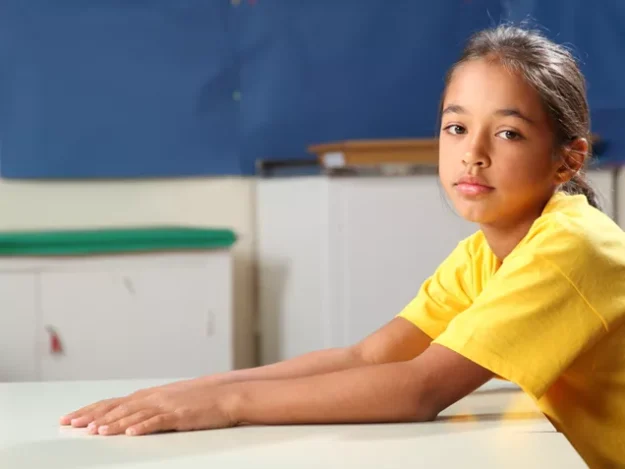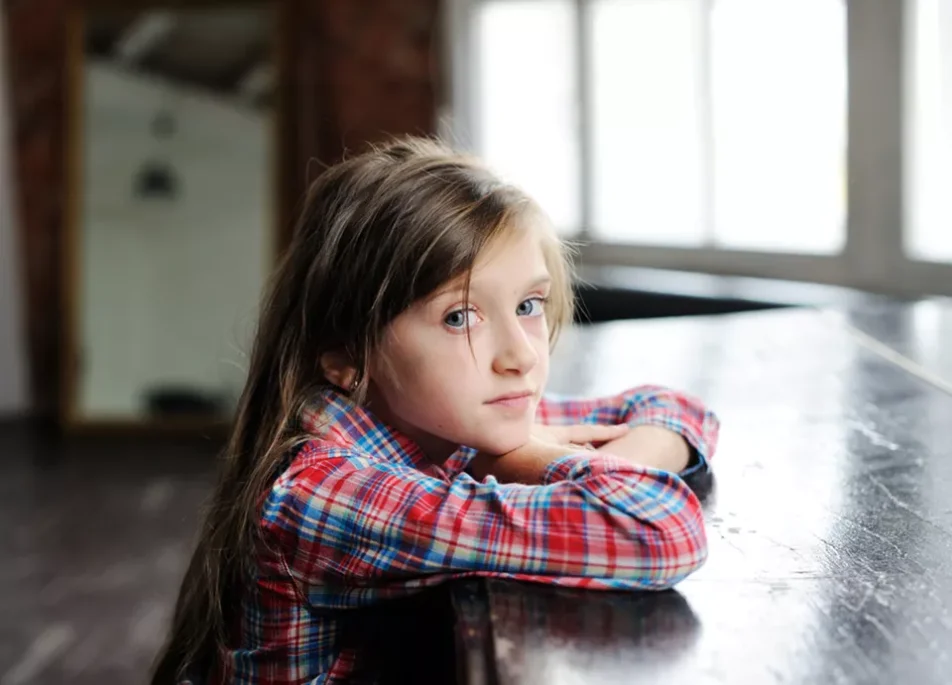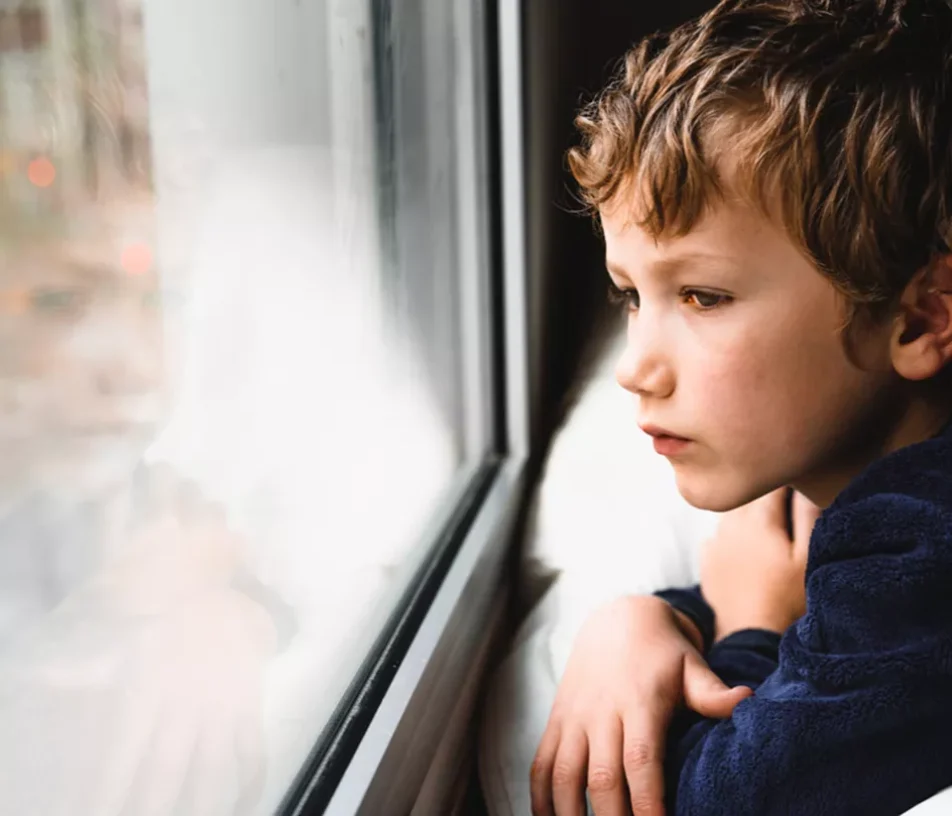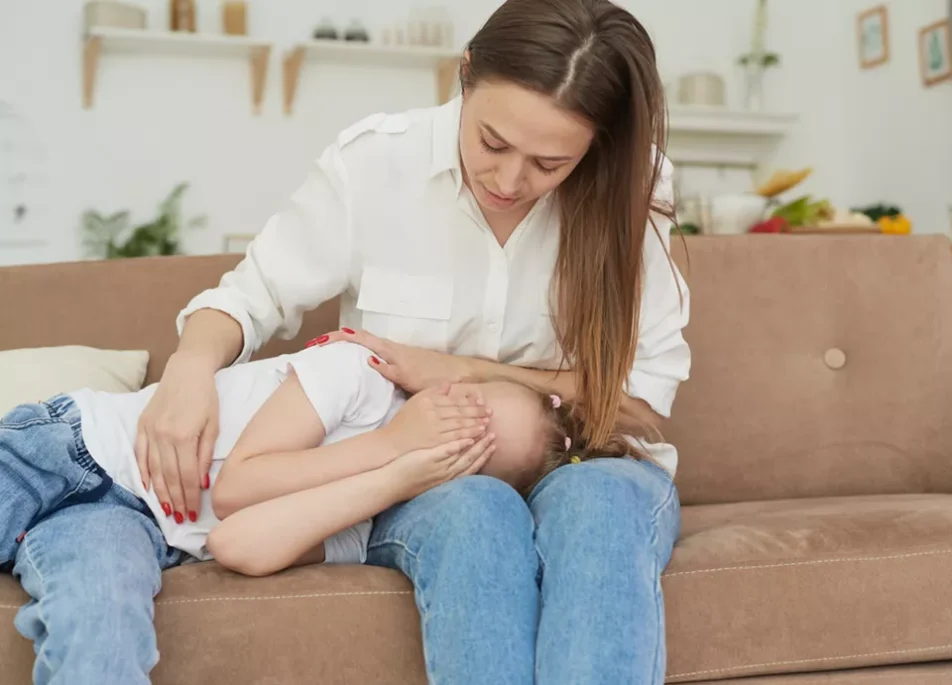From the findings from the Behavioural Insights to Fostering and Adoption in England report from December 2022, a major factor that was identified as a possible deterrent to fostering was the concerns about children’s behaviour.
Unfortunately, a main reason for children exhibiting challenging behaviour can be due to a traumatic, neglectful or emotionally or physically abusive background.
The signs of child neglect or abuse might not always be easy to spot straight away, but understanding and being aware of what trauma is can make all the difference to a child who has been through such turmoil.

What is child abuse?
According to the Met Police, child abuse is when anyone under the age of 18 is either being harmed or not properly looked after. In short, it’s the wrongful treatment of a child, and children that are subjected to abuse usually experience harm to their physical health, mental health, welfare, and self-respect.
Child abuse falls under four main categories:
- Physical abuse – this could be hitting, scratching, shaking, choking, kicking or burning a child to cause physical harm.
- Emotional abuse – this is when a caregiver threatens, judges, insults, rejects or withholds love to the point where a child feels worthless.
- Sexual abuse – this includes sexual contact (the performing of sexual acts) and non-sexual contact (sharing explicit images or engaging in sexual talk) with a minor.
- Neglect – this is when a caregiver doesn’t do what is necessary to look after a child, such as providing food, supervision, attention, medical care and schooling.
Child abuse of all kinds creates trauma, something that is caused when a child experiences a significantly scary or dangerous event (or events) which compromises their safety or poses a threat to their life. Experiencing child abuse at such a young age can cause children to have serious trust issues with adults.
Many children in the care system have experienced – and are trying to heal from – trauma such as abuse and neglect. Caring for a child like this doesn’t come without challenges, but it’s incredibly rewarding to help them overcome their past and come out the other side stronger and emotionally healthier. This means foster parents need to be stable and strong role models, seeing past the behaviour and instead, empthasing with where they are coming from.
Types of child neglect
The types of childhood trauma range from everything from physical, emotional, and sexual abuse, to child neglect and emotional neglect.
We believe that every child deserves to be loved and grow up in a nurturing and safe house surrounded by people who care for them. But sadly, this isn’t always the case, and many of the children who come into foster care have suffered from neglect.
Neglect is the ongoing failure to meet a child’s basic needs, and it is the most common form of child abuse. Neglect can be a lot of different things, but essentially, there are four main types:
Primary caregivers who neglect their own children might be experiencing trauma of their own. They might be suffering from issues such as depression, substance misuse, mental health issues, anger toward their child, a history of neglect from their own parents, or a lack of parenting skills.
That’s why when you foster a child with FCA, it’s crucial to be empathetic. Our aim is always to reunite the child with their birth parents (where possible) and having knowledge of the child’s background and any challenges their parents might have faced can help create a more understanding environment.
Impact of emotional neglect in childhood
Neglect negatively changes childhood, and those who have been neglected or abused might suffer from short-term or long-term effects.
So, what are the long-term effects of neglect or abuse? Some include:
- Difficulty with relationships both now and in the future.
- Problems with brain development.
- Taking risks.
- Using drugs or alcohol.
- Breaking the law.
- Running away from home.
- Entering dangerous relationships.
- A higher chance of developing mental health problems.
- Attachment trauma.
If a child or young person learns from a young age that they can’t rely on or trust their primary caregivers to meet their emotional and physical needs, it becomes ingrained in them that they can’t trust others. This can result in developing their own coping strategies, as well as insecure attachment patterns, preventing them from forming healthy relationships all the way into adulthood.
Behavioural signs of neglect
Our brains develop from birth into adulthood, and there are key periods during early childhood where children’s brains are more affected by positive or negative experiences. These experiences can have a significant effect on their brain development.
While positive experiences help build healthy brains, which can lead to positive adulthood, negative experiences such as child neglect, emotional neglect, physical abuse, or child sexual abuse, can harm the brain’s development, and open them up to a variety of issues during childhood and adulthood.
The effects of abuse and neglect on brain development can vary but on the whole, studies have shown that severe neglect or deprivation disrupts the ways in which children’s brains develop and process information.
This can increase the risk for emotional, attentional, cognitive, and behavioural disorders including:
- Attachment issues
- Difficulty regulating emotions
- Behavioural issues (such as impulse control, aggression, and self-destruction)
- Mental health issues
- Dissociation
- Flashbacks
- Difficulty learning
But the good news is our brains always have the potential to change and it’s never too late to give a child with a traumatic past positive brain-building experiences.
This is where we (and you) come in. By giving abused children a loving and secure home and the support they need, we can reduce the harmful effects of negative experiences and help their brain to develop in a healthy way.
Attachment trauma
Sadly, many children and young people that come into the care system each year have suffered from attachment trauma. This is the inability to form a secure and healthy bond with their primary caregiver due to the trauma they have experienced.
This disruption of bonding comes in many forms, such as a traumatic event or abuse and neglect. This emotional abuse makes the places and people the child should feel their safest with become a source of fear and anxiety. This can lead to behavioural signs of neglect and prevent the child from forming healthy attachments with others around them.
While the road to healing from attachment trauma can be a long and bumpy one, if you can offer a child empathy, time, love, and patience, then you can help them rebuild those ruptured bonds and help pave the way for a more positive future.
Signs of attachment trauma in children who have suffered from abuse and neglect can include:
- No impulse control
- A tendency to act hyperactive
- Destructive behaviour
- Abnormal eating patterns
- Abnormal speech patterns
- An inability to make friends
- Unable to make eye contact
- Acting clingy or demanding
FCA support
How FCA supports foster parents caring for young people who have faced child neglect
We believe in therapeutic fostering, which helps to mitigate the traumatic experiences of children in care by bringing together those involved in their life to form a wrap-around parenting team. Therapeutic foster care is tailored to meet the complex needs of children who are living with the effects of child neglect, abuse, and trauma before being placed into care.
This gives us the opportunity to fully understand their history and difficulties and help their well-being and development.

Play therapy
Play therapy is another form of therapy we use to help children in the foster care process and overcome their past by exploring emotions and communicating through play. This non-invasive form of therapy through play relies on a child’s instinctual way to communicate and express themselves in a fun and open way. This can be done with dolls and figures, arts and crafts, storytelling, and make-believe.
Extensive support
As a foster carer, you’ll play a big role in making a difference in your foster child’s life with therapeutic fostering, and we’re here 24/7 to support you.
You’ll be part of a team of specialists, social workers, therapists, education workers, and support workers who are all committed to changing children’s lives for the better. We call this Team Parenting ® and it allows foster parents and children in care to get the required level of support to meet their needs.
This gives us the opportunity to monitor how well the children are doing throughout their fostering journey and allows us to identify what’s working well and where we could make changes to help both foster carers and the children more.
Not only will you receive full support whenever you need it, but also ongoing training, therapy groups, and activities, which will give you the tools you need to give your foster child a chance to recover from their past and become an emotionally resilient and happy adult.


